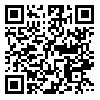

BibTeX | RIS | EndNote | Medlars | ProCite | Reference Manager | RefWorks
Send citation to:
URL: http://jdisabilstud.org/article-1-1914-en.html
2- Department of Measurement and Measurement, Faculty of Psychology and Educational Sciences, Allameh Tabataba'i University
3- Departement of Motor Behavior, Borujerd Branch, Islamic Azad University
Background & Objectives: Cardiovascular disease is one of the main noncommunicable diseases. Since cardiovascular diseases are considered psychosomatic diseases, biological and psychological factors should be considered in examining the factors affecting their occurrence. One of the factors that heart patients are involved with and ignore is the inability to express emotions. Numerous factors can directly or indirectly and positively or negatively affect a person's psychological health. Among these influential factors are problem–solving styles that have a significant impact on various activities and ultimately on people's health. Schemas are used as a framework for information processing and determine people's emotional reactions to life situations and interpersonal relationships. Schema therapy deals with the deepest level of cognition and targets early maladaptive schemas, and helps patients to master these schemas by using cognitive, emotional, behavioral, and interpersonal strategies. Because of the interaction of different aspects of physical, psychological, cognitive and emotional factors on heart disease, the present study was conducted to determine the effectiveness of schema therapy on problem–solving styles and emotion–regulation strategies in cardiac patients living in Tehran City, Iran.
Methods: The research method was quasi–experimental with a pretest–posttest design with a control group. The statistical population consisted of all cardiac patients referred to the Nuclear Medicine Center in 2017 in Tehran. Thirty eligible volunteers were selected using the available sampling method. Then, they were randomly divided into experimental and control groups (15 people in each group). The inclusion criteria study were informed consent, the age range of 40 to 65 years, minimum diploma education, no other chronic illness (such as physical or mental illness and mental retardation), and not taking certain medications. The samples should have heart disease with cardiologist diagnostic evaluations (ECG, echo, angiography, CT and heart scan). The exclusion criteria included two consecutive or non–consecutive absences from the intervention, inaccurate homework and exercises during three consecutive or non–consecutive sessions, and the use of psychotropic drugs and psychiatry during the study. To collect data, the Problem–Solving Questionnaire (Cassidy & Long, 1996), the Cognitive Emotion Regulation Questionnaire (Garnefski & Kraaij, 2006), and schema therapy training were used. The experimental group received schema therapy training in ten 90–minute sessions, but no intervention was provided for the control group. Descriptive statistics (mean and standard deviation) and inferential statistics (analysis of covariance and independent t test) were used to analyze the data obtained from the questionnaires. Data analysis was performed in SPSS software version 22. The significance level of all tests was considered 0.05.
Results: The results showed that after pretest control, schema therapy had a significant effect on components of problem–solving styles, including inhibition (p=0.014), self–confidence (p=0.015), approach (p<0.001), helplessness (p=0.004) and creativity (p=0.004), but no effect on avoidance (p=0.094). In addition, schema therapy did not have a significant effect on any of the variables of cognitive emotion regulation variables, i.e., adaptive strategies (p=0.341) and nonadaptive strategies (p=0.867).
Conclusion: According to the study results, schema therapy is an effective intervention to improve problem–solving styles, including inhibition, self–confidence, approach, helplessness, and creativity in cardiac patients.
| Rights and permissions | |
 |
This work is licensed under a Creative Commons Attribution-NonCommercial 4.0 International License. |




